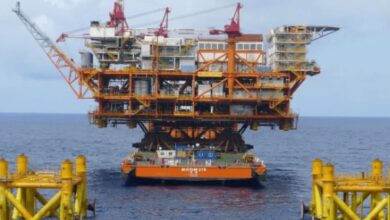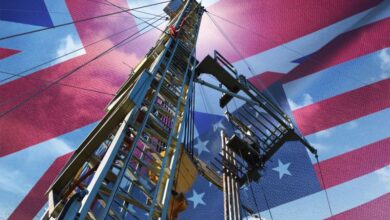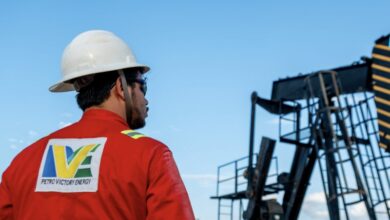IADC, senators call for resumption of safe deepwater drilling
IADC is urging the Obama Administration to lift the recently announced moratorium on deepwater drilling in the Gulf of Mexico, warning that the blanket suspension would lay to waste tens of thousands of US jobs. A better solution is to validate the fitness of current deepwater drilling operations and allow safe drilling to continue, the association said.
IADC’s call for the resumption of drilling was echoed by two Louisiana senators, the Louisiana Mid-Continent Oil and Gas Association (LMOGA), the National Association of Manufacturers (NAM) and the National Ocean Industries Association (NOIA).
President Barack Obama announced on 27 May that he was extending by at least six months the moratorium on new deepwater drilling in the Gulf of Mexico, as well as suspending the drilling of 33 ongoing deepwater projects.
The moratorium applies to virtually all drilling in water depths of 500 ft or more. The two rigs drilling Macondo relief wells are exempted from the moratorium.
With each deepwater mobile offshore drilling unit employing 180 to 280 workers and each of those positions supporting four other industry employees, it’s estimated that the ban could impact approximately 29,700 to 46,200 jobs. Direct wages lost could be as high as $330 million per month, according to the LMOGA.
“The Macondo is a tragic accident,” said IADC president Dr Lee Hunt. “However, shutting down an entire industry is an overreaction. The 33 deepwater rigs in the Gulf of Mexico are operating according to established industry best practices in safety and environmental protection.”
IADC urges the government to validate the fitness of existing deepwater drilling operations by:
• Recertifying all BOP equipment used in floating drilling operations and ensuring their suitability for the rig and well design. This suggestion combines Recommendations 1 and 2 of the document “Increased Safety Measures for Energy Development on the Outer Continental Shelf,” issued on 27 May by the Department of Interior (DOI).
• Ensuring rig personnel are trained to industry- and government-accepted standards for well control procedures.
• Reviewing operator well plans, with particular emphasis on casing and cementing designs to ensure that there are sufficient pressure barriers and that designs are fit for purpose.
After confirming the correctness and preparedness of each rig and well design, these deepwater rigs should be permitted to resume work, and the DOI should resume issuing permits for new deepwater work.
Senators David Vitter, R-La., and Mary Landrieu, D-La., have both voiced their support for the resumption of drilling.
Sen. Vitter wrote to President Obama on 3 June urging him to replace the drilling moratorium with immediate rig safety inspections. Rigs should be allowed to continue operations unless safety problems are identified, he said.
He also emphasized that, with Louisiana’s unemployment rate standing at 6.2%, the federal government should focus on policies that will create jobs. He estimated that the moratorium could eliminate up to 4,000 Louisiana jobs in the short term and up to 20,000 jobs through 2010. The moratorium also prevents the state from collecting revenues from offshore activity, which is used for coastal restoration and hurricane protection, he said.
“Our workforce and economy have been significantly impacted from the ongoing oil spill crisis in the Gulf of Mexico. This deepwater moratorium could potentially be devastating for Louisiana. The likely impact of this moratorium is long-term job destruction as these jobs leave the Gulf region permanently and move to other regions of the world,” according to his letter.
Sen. Vitter also hosted a teleconference call on 3 June with IADC, NOIA, LMOGA and Tulane University to discuss potential consequences of the drilling moratorium on the industry and the regional economies, as well as ways to mitigate that impact. Participants also discussed actions that could be taken to improve offshore safety ahead of recommendations issued by the DOI.
Sen. Landrieu also has called for an end to the moratorium, noting that the ban on drilling could mean a loss of funding for coastal restoration projects. “It’s very important for our economy, and we’ve been doing this (drilling) safely, as we desperately try to get BP to get this well closed,” she told a Gulf Coast radio station.
Many of the deepwater rigs could also head overseas and not return to the Gulf for many years, she said, bringing additional negative impact to the economy.
Aside from banning new deepwater drilling, other actions announced by the president on 27 May were the suspension of exploration drilling offshore Alaska in the Chukchi and Beaufort Seas and the cancellation of a pending lease sale in the western Gulf of Mexico and a proposed lease sale offshore Virginia.
The National Association of Manufacturers (NAM) issued a statement on 28 May to support the continued development of the OCS. “It is a mistake to put a moratorium on exploration and development of our nation’s oil and natural gas resources. We believe the Administration’s decision to cancel existing leases will set our country back in achieving economic security and energy independence,” said NAM president and CEO John Engler.





Finally some common sense may prevail!?
A blowout causing an oil spill of such magnitude, as tragic and sensational as this one most certainly is, must be put in proper perspective.
No doubt, critical systems failed, corners were cut, poor maintenance or well planning happened, perceived and real time pressure existed, wrong or ill-informed decisions were made and thus the Deep Water Horizon was lost along with 11 colleagues, a well is out of control.
We humans create our own demand for energy, we ALL share in the fallout and the responsibility to deal with the effluent created by Our own gluttonous consumption.
A knee jerk moratorium on deep water drilling and the stalling of new permits in the shallow water, will drive the most competent WORLD CLASS drillers, oil companies and services providers out of the USA. Their absence will be felt, country wide, for years to come in countless communities and every time YOU or I drive up to the pumps or consume a product that relies on the existence of the petroleum Industry.
Energy exploration & production companies, drillers and service providers from Exxon, BP, Halliburton and Transocean on down to the smallest mom and pop single service provider are nothing more than “Energy Farmers” attempting to feed the insatiable demand created by an energy hungry Global market!
E&P companies,especially those in the public domain, have become driven by the need for ROI and Investor Relations (PROFIT)at the direction of board rooms and management offices populated, all too often, by accountants, legal wizards, CEO’s, and people with little hands on or HSE experience. People mostly out of touch with this dirty, highly technical, hands on knowledge required, drill deeper, ever more risky, HSE critical heavy industry we are in.
Deep water is here to stay and Deeper Water on our Horizon,
Let us learn from this and make it a 1 of event.
Oh Yes
Regarding Viable energy sources (available at this moment in History) Someone please conduct a poll of:
• The “Half life” people who once inhabited the area around the Chernobyl reactor.
• The people of Valdez Alaska.
• The People living around the Gulf of Mexico.
• The People of the Three Mile Island area.
1) Carbon based Or 2) Atomic based Energy
Russell L Compton
Senior Drilling Superintendent
Canadian, currently providing Carbon based energy for Indonesia.